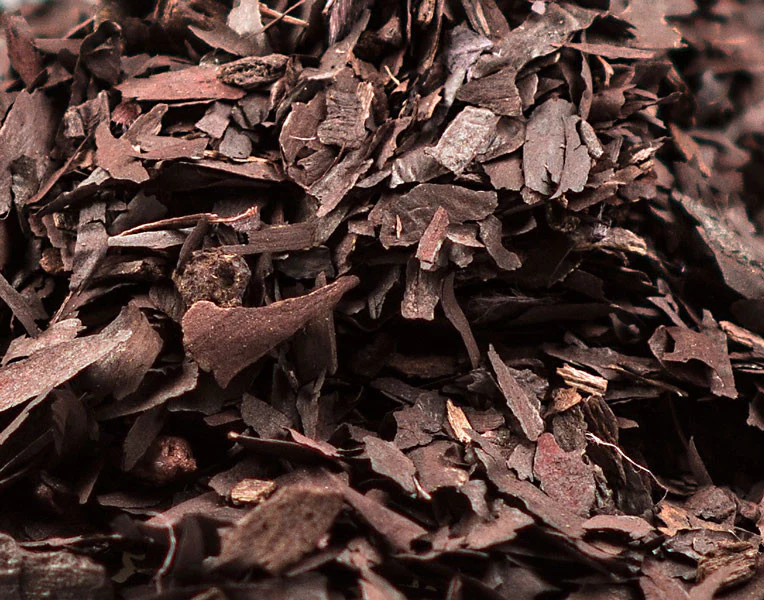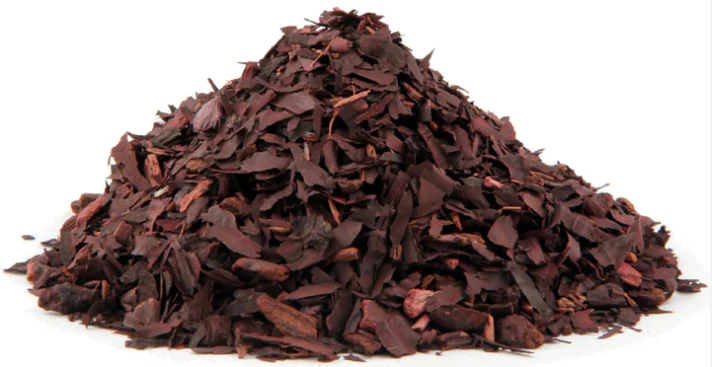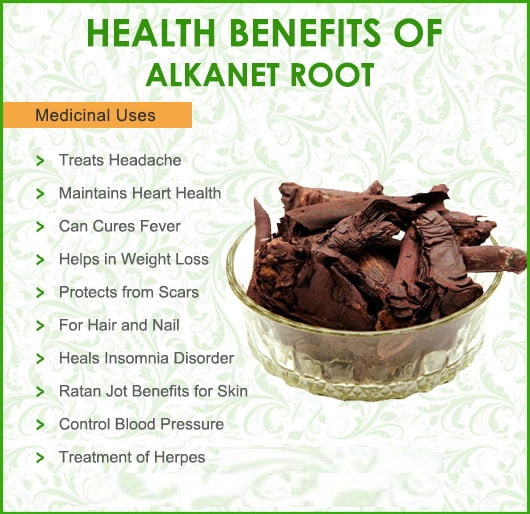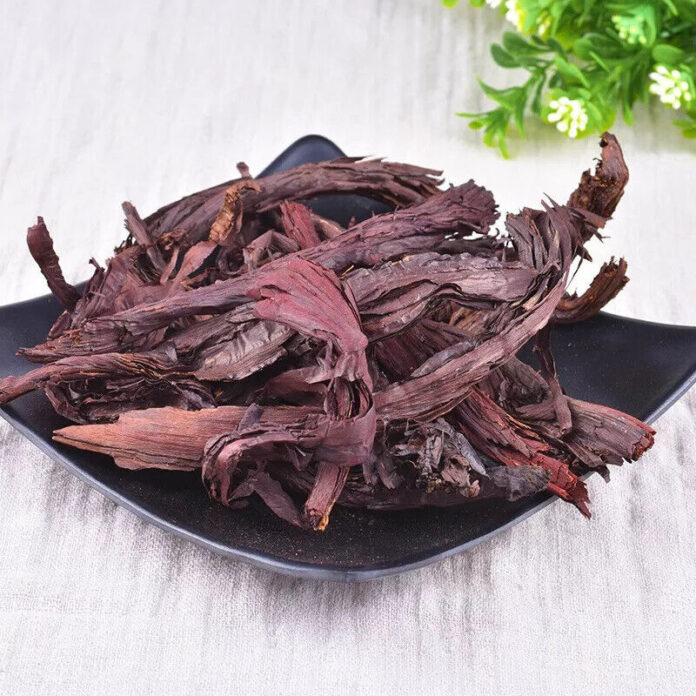INTRODUCTION
Urdu Name: Ratanjot

Alkanet root, from the Alkanna tinctoria plant, is used in traditional medicine for its potential anti-inflammatory, antimicrobial, and wound-healing properties. It has been applied topically to treat burns, ulcers, and skin inflammations. The root contains compounds such as alkannins, which are believed to aid in tissue regeneration and provide soothing effects on irritated or damaged skin. While commonly used in folk remedies, clinical evidence supporting its medicinal efficacy is limited, and it is mainly recognized for its topical applications rather than internal use.
Types
Alkanet root generally refers to the root of the Alkanna tinctoria plant, but there are a few related types of alkanet plants that share similar uses and properties. Here are the main types:
1. Common Alkanet (Alkannatinctoria)
This is the most well-known type, traditionally used for its dyeing properties and in herbal medicine. The root is deep red and is used in cosmetics, food coloring, and skincare products.
2. Blue Alkanet (Anchusaazurea)
Also known as Italian bugloss, this plant is more commonly grown for ornamental purposes due to its striking blue flowers. While less used in dyeing or medicine, it is sometimes applied in folk remedies.
3. Green Alkanet (Pentaglottissempervirens)
This type is commonly found in the wild in parts of Europe. It has blue flowers and is typically grown as an ornamental plant rather than for its medicinal or dye properties. The root is less commonly used in herbal applications.
Though these plants are related, Alkannatinctoria is the primary source of the alkanet root used for its medicinal and dyeing purposes.
Uses

Alkanet root has a variety of uses, including:
- Dyeing: It produces a reddish-purple dye used for coloring textiles, wood, and even food.
- Cosmetics: It’s a natural coloring agent in lip balms, soaps, lotions, and other beauty products.
- Herbal Medicine: Traditionally used to treat wounds, inflammation, and skin conditions due to its supposed anti-inflammatory and healing properties.
- Food Coloring: Sometimes used to impart color to natural food products and beverages.
Health Benefits
Alkanet root offers several potential health benefits, particularly for skin-related issues, due to its natural properties. Here are some key benefits:
Wound Healing
Alkanet root has been traditionally used to promote the healing of wounds, burns, and cuts. The root’s active compounds, especially alkannins, are believed to accelerate tissue regeneration and reduce scarring.
Anti-Inflammatory
It is known for its anti-inflammatory effects, helping to soothe irritated or inflamed skin. This makes it useful in treating conditions like eczema, dermatitis, and other skin inflammations.
Antimicrobial Properties
Alkanet root contains natural antimicrobial agents, which can help prevent infections in wounds and skin conditions by inhibiting the growth of bacteria and other pathogens.

Skin Soothing
Its calming properties help alleviate symptoms of dryness, itching, and redness. It’s often used in balms and salves to nourish and soothe the skin.
Anti-Aging
Some believe alkanet root helps in maintaining youthful skin by reducing oxidative stress and improving skin elasticity, though scientific evidence is limited.
Fever Reduction
In folk medicine, alkanet root has been used as a remedy to reduce fever and soothe symptoms of cold and flu, possibly due to its anti-inflammatory and immune-boosting properties.
Joint Pain Relief
Due to its anti-inflammatory action, alkanet root may help reduce pain and swelling in conditions like arthritis, providing relief from joint discomfort.
Liver Protection
Some herbalists suggest that alkanet root could have hepatoprotective (liver-protecting) effects, potentially aiding in detoxification and supporting liver function. This is based on traditional use, but scientific research is limited.
Anti-Tumor Potential
Some studies suggest that alkannins and shikonins, the active compounds in alkanet root, may exhibit anti-cancer properties by inhibiting the growth of certain cancer cells. However, more research is needed to confirm these effects.
Anti Hair fall
There are several benefits of Ratanjot for hair. Ratanjot or Alkanet can act as a natural dye for your hair. It helps restore and strengthen your hair from the roots. You can use Ratanjot powder for grey hair, as it provides natural color to hair. Ratanjot oil extracted from the roots can address various hair problems such as profuse hair fall, grey hair and avoid symptoms of baldness.
Side Effects

While alkanet root (Alkanna tinctoria) is used in traditional medicine and cosmetics, there are some potential side effects and risks associated with its use. These side effects are mainly due to certain compounds, like pyrrolizidine alkaloids, found in the plant. Here are some potential side effects:
- Liver Toxicity
- Allergic Reactions
- Potential Carcinogenicity
- Skin Irritation
- Gastrointestinal Issues (if ingested)
- Respiratory Problems (if inhaled in powder form)
- Interaction with Medications




